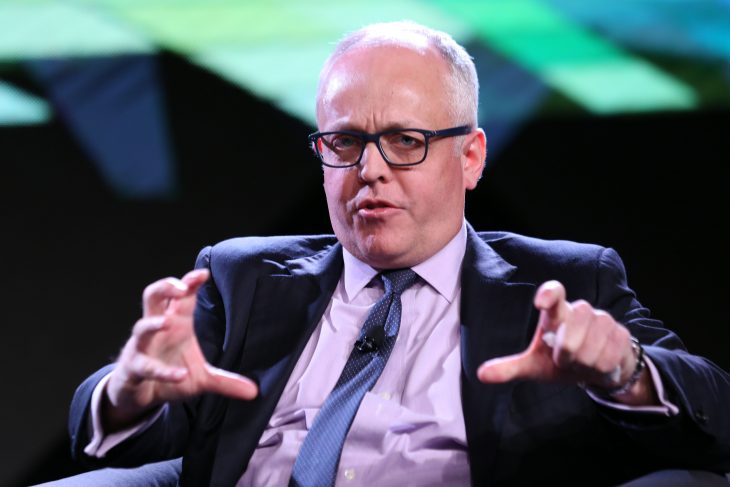
OTTAWA – Middle-aged media execs are usually investors in Vice Media, not managers
So it caused quite a stir when Shane Smith's fast-growing digital powerhouse recently lured David Purdy away from cable giant Rogers Communications to help grow its edgier Vice Media business worldwide as chief international growth officer.
Even Purdy (pictured) shares the surprise, given Vice's production focus on millennials. "My first day at Vice, I came into the room and counted 14 tuques. And I'm the only bald guy in the room, the only guy who should have a tuque on," he recalled during an informal keynote at the Prime Time conference in Ottawa on Thursday afternoon.
Despite his age, Purdy said he was called to Vice to help get it "to the next level as fast as they possibly can, without ruining what's unique," namely the media brand's mythic connection young audiences. "It's going to be way bigger than we think it is," he said of Viceland, the 24 hour TV channel to be launched by Rogers and Vice on February 29, replacing Bio. So, Purdy invited producers to bring their ideas to Vice, to be produced by the Toronto studio or by a third party.
The size of that business opportunity with Vice for indie Canadian producers, and any contractual terms, is uncertain, however, given Vice's tendency to work in-house, but Vice is also bringing shows from the U.S. to produce in Canada, given the low Canadian dollar and available incentives and tax credits, Purdy said. (The channel is launching Stateside also on Feb. 29, replacing A&E Networks’ H2).
But with Viceland to expand internationally, possibly to 12 more markets within 24 months, there's scope for partnerships with Canadian indie producers, he added.
At any rate, Purdy told producers battling digital disruption that they had to escape the confines of traditional TV, anyways. Everyone has to reinvent the wheel in the current digital age, he told the Prime Time audience, because it doesn't work anymore.
"You can't get complacent," Purdy said.
"Suddenly we were doubling or tripling our capital expenditures in order to get higher than Netflix rankings.” – David Purdy, Vice Media
Even cable giants aren't safe in today's business landscape, even with their broadband network and ability to control the streaming pipeline. "When I was at the cable company (Rogers), we once said there will be no streaming business because the network capacity isn't there to support it," Purdy recalled.
Then Netflix produced charts showing cable company rankings on how much streaming capacity they had, what they charged and how fast the systems were. "Suddenly we were doubling or tripling our capital expenditures in order to get higher than Netflix rankings," Purdy said.
"There is no safe place. You have to constantly think about how to disrupt yourself, how to cannibalize yourself, how do you evolve to the next business," he added.
There is certainty, however, at Vice in terms of its audience. It is content by young people, for young people – that was very clear to Purdy when he showcased early Viceland shows to executives at Rogers, Vice’s Canadian partner.
"A third of them were truly horrified, a third were ambivalent and wary about the future of the channel, and a third were wildly engaged, totally got it," he recalled.
That's fine with Purdy. "We want to tell different stories," than traditional media outlets, he told the Prime Time audience. That means no middle-aged politicians at podiums during newscasts, framed by B-roll footage.
"We want to go behind the news, as if you were telling your friend that story," Purdy advised of Vice's tone and manner. He added besides Vice Canada's Toronto studio, an expansion out to Vancouver is in the works.
"We would love to expand out West and we're in discussion with a Canadian broadcast ownership group about possibly taking on some work to allow us to do that," Purdy said of plans for Vancouver.
Photo from John Major Photography courtesy of CMPA.




